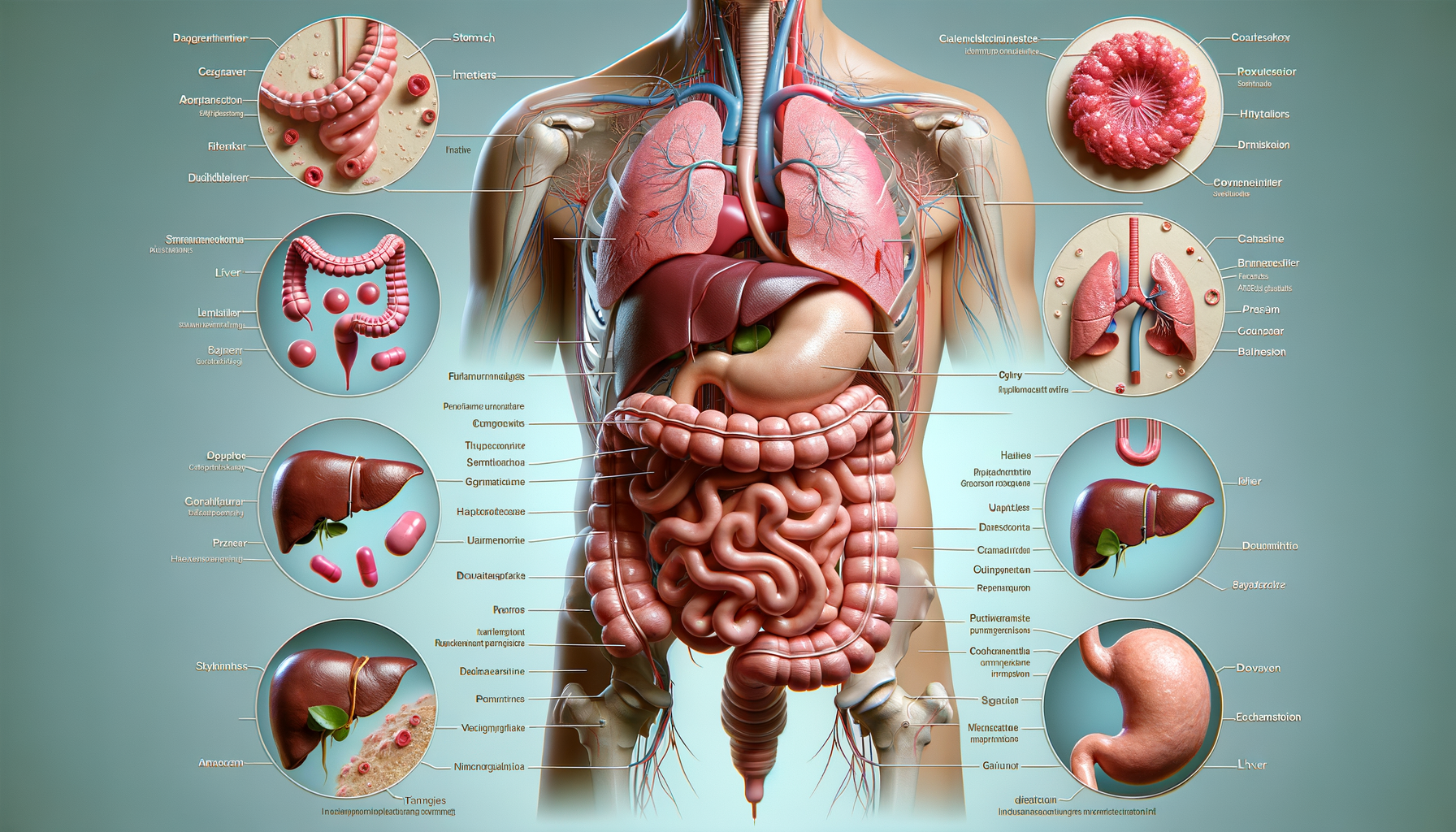Understanding the Digestive System
The digestive system is a complex network that plays a crucial role in maintaining our overall health. It is responsible for breaking down the food we eat, absorbing nutrients, and eliminating waste. The system comprises several organs, including the mouth, esophagus, stomach, intestines, liver, and pancreas. Each organ has a specific function, working in harmony to process food efficiently.
When the digestive system is functioning properly, it ensures that our body receives the essential nutrients required for energy, growth, and cell repair. However, any disruption in this process can lead to various health issues. For instance, if the stomach does not produce enough acid, it can hinder the breakdown of food, leading to indigestion and nutrient deficiencies.
Moreover, the gut is home to trillions of bacteria that form the gut microbiome. This microbiome is vital for digestion, immune function, and even mental health. An imbalance in these bacteria can result in digestive disorders such as irritable bowel syndrome (IBS) or inflammatory bowel disease (IBD).
Understanding the digestive system’s intricacies helps us appreciate its importance and recognize when something is amiss. By paying attention to our body’s signals, we can address potential issues before they escalate.
Common Digestive Disorders and Their Symptoms
Digestive disorders are prevalent, affecting millions of individuals worldwide. Recognizing the symptoms early can prevent complications and improve quality of life. Some common digestive disorders include:
- Gastroesophageal Reflux Disease (GERD): Characterized by chronic acid reflux, GERD can cause heartburn, chest pain, and difficulty swallowing.
- Peptic Ulcers: Open sores that develop on the inner lining of the stomach or upper small intestine, leading to abdominal pain, bloating, and nausea.
- Irritable Bowel Syndrome (IBS): A disorder affecting the large intestine, causing symptoms like cramping, abdominal pain, bloating, gas, diarrhea, and constipation.
- Inflammatory Bowel Disease (IBD): Includes conditions like Crohn’s disease and ulcerative colitis, which involve chronic inflammation of the digestive tract.
Each of these conditions presents unique challenges, but they share common symptoms such as abdominal discomfort and changes in bowel habits. It’s essential to consult healthcare professionals for accurate diagnosis and treatment to manage these disorders effectively.
Impact of Diet on Digestive Health
Diet plays a pivotal role in maintaining digestive health. What we consume directly affects how our digestive system functions. A balanced diet rich in fiber, for instance, promotes healthy bowel movements and prevents constipation. Foods high in fiber include fruits, vegetables, whole grains, and legumes.
Conversely, diets high in processed foods, sugars, and unhealthy fats can disrupt the digestive process. These foods can lead to inflammation, bloating, and even contribute to the development of digestive disorders. Additionally, excessive consumption of caffeine and alcohol can irritate the digestive tract, leading to discomfort and potential long-term issues.
Hydration is another critical factor. Water aids digestion by helping break down food, allowing nutrients to be absorbed more efficiently. It also softens stool, preventing constipation. Therefore, ensuring adequate water intake is vital for optimal digestive health.
Incorporating probiotics into one’s diet can also support a healthy gut microbiome. Probiotics are beneficial bacteria found in fermented foods like yogurt, kefir, and sauerkraut. These microorganisms help maintain a balanced gut flora, which is essential for digestion and overall health.
Signs Your Digestive System Might Be Struggling
Our bodies often give us signals when something is wrong, and the digestive system is no exception. Recognizing these signs can help address issues before they become severe. Some indications that your digestive system might be struggling include:
- Persistent Bloating: While occasional bloating is common, persistent bloating may indicate a digestive issue such as IBS or food intolerance.
- Frequent Heartburn: Regular heartburn can be a sign of GERD, which requires medical attention.
- Irregular Bowel Movements: Consistent constipation or diarrhea can suggest an underlying problem like IBS or IBD.
- Unexplained Fatigue: If your digestive system is not absorbing nutrients properly, it can lead to fatigue and weakness.
- Changes in Appetite: A sudden increase or decrease in appetite could signal a digestive disorder.
Being attentive to these signs and seeking medical advice can prevent complications and improve digestive health.
Improving Digestive Health: Practical Tips
Improving digestive health involves lifestyle changes and mindful eating habits. Here are some practical tips to enhance your digestive system:
- Eat a Balanced Diet: Focus on a diet rich in fruits, vegetables, lean proteins, and whole grains to provide essential nutrients and fiber.
- Stay Hydrated: Drink plenty of water throughout the day to aid digestion and prevent constipation.
- Exercise Regularly: Physical activity promotes regular bowel movements and reduces stress, benefiting digestive health.
- Manage Stress: Chronic stress can affect digestion, so incorporating stress-reducing activities like yoga or meditation can be beneficial.
- Avoid Overeating: Eating smaller, more frequent meals can prevent digestive discomfort and improve nutrient absorption.
By adopting these habits, you can support your digestive system and enhance your overall well-being.

Leave a Reply